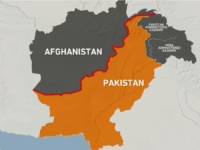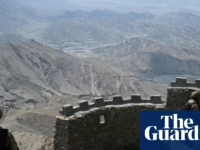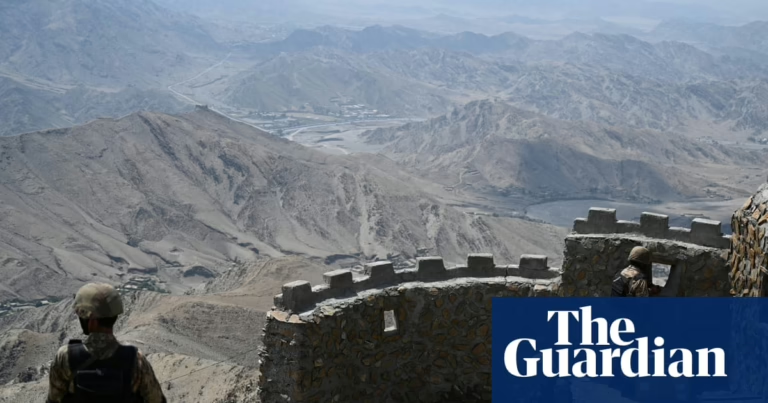Violent confrontations flared up late Saturday along the Pakistan-Afghanistan frontier following an assault by Taliban fighters on Pakistani military installations.
This surge in hostilities follows a recent Pakistani air raid in Kabul earlier this week, as confirmed by security sources from both countries.
In response, Taliban militants launched armed counterattacks against Pakistani forces, accusing Islamabad of conducting aerial strikes within Afghan borders, according to senior Taliban representatives from multiple provinces. They asserted control over two Pakistani border checkpoints in Helmand province, a claim verified by local officials.
Pakistani authorities admitted to engagements at various points along the border, emphasizing their robust countermeasures. “Taliban fighters initiated gunfire at several border posts tonight. We responded with artillery fire at four different locations,” a Pakistani official told the Guardian.
“We will not allow any hostile actions by the Afghan Taliban on our soil. Our forces retaliated with significant firepower, successfully targeting multiple Afghan border positions,” the official added.
The Pakistani military employed a combination of artillery, armored tanks, and both light and heavy arms during their counteroffensive.
Earlier in the week, two blasts were reported in Kabul and another in southeastern Afghanistan. The Taliban-led defense ministry accused Pakistan of breaching Afghan sovereignty in connection with these incidents.
Experts note that recent developments highlight the deep-rooted tensions along this taliban-lost-frontier-peace/” title=”How …'s Misjudgment of the … Shattered Peace on the Frontier | Armed Groups News”>volatile border.
Michael Kugelman, a South Asia expert based in Washington DC, commented, “The escalation of cross-border attacks on Pakistani troops, combined with unusually forceful Pakistani strikes inside Afghanistan and Taliban reprisals, has created a highly volatile environment. Add to this the fact that Afghanistan does not officially recognize the border, along with widespread misinformation, and the situation becomes even more precarious.”
Islamabad has shown increasing frustration with Kabul, neither confirming nor denying its role in the airstrikes.
While Pakistan has not openly admitted responsibility for the strikes, it has demanded that Kabul stop providing sanctuary to the Tehreek-e-Taliban Pakistan (TTP), a group blamed for killing hundreds of Pakistani soldiers since 2021 and believed to have received training in Afghanistan, sharing ideological links with the Afghan Taliban.
“Fortunately, despite the severity of this crisis, it is likely to subside soon. The Taliban lack the capability to confront the Pakistani military directly, and once their retaliatory actions satisfy domestic pressures, tensions are expected to ease,” Kugelman added.
Lieutenant General Ahmed Sharif Chaudhry, spokesperson for the Pakistani military, acknowledged the reports of strikes and stated, “To safeguard the people of Pakistan, we will continue to take all necessary measures.” He also called on Afghanistan to prevent its territory from being exploited for terrorist activities against Pakistan.
Security analyst Imtiaz Gul from Islamabad remarked, “The recent flare-up is a natural outcome of escalating tensions between the two nations, especially following Pakistan’s kinetic operations against TTP hideouts and Afghanistan’s persistent refusal to take decisive action against the TTP, which leads terrorist attacks in Pakistan.”
Relations between Afghanistan and Pakistan have deteriorated in recent months amid Islamabad’s accusations that Kabul shelters the TTP, responsible for numerous attacks inside Pakistan.
Kugelman warned that Pakistan’s recent strikes in Afghanistan might provoke the TTP to launch retaliatory attacks, potentially triggering further and more intense Pakistani military operations in Afghan territory. “This cycle could continue indefinitely, with no clear winners or straightforward long-term solutions,” he said.
“Even if tensions ease now, the region remains far from stable.”
The two neighbors share a rugged, mountainous border stretching nearly 2,600 kilometers (1,600 miles), known as the Durand Line.
Gul added, “Pakistan’s patience has clearly worn thin, prompting direct action against TTP leadership. The Taliban, in turn, view this as a retaliatory strike.”






















